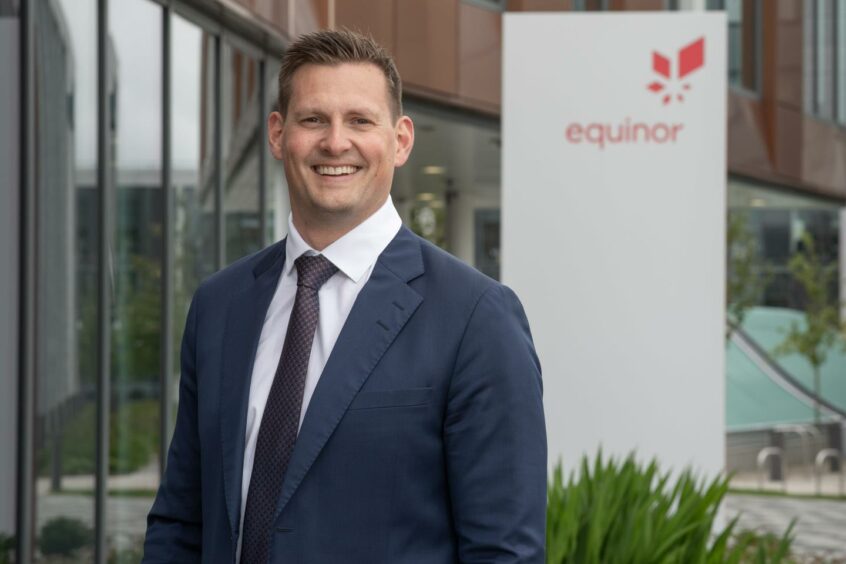
Concerns around the windfall tax may see some companies look beyond the UK for M&A deals – but not Norway’s Equinor (OSLO: EQNR).
The firm yesterday struck an $850m deal for the UK assets of Canadian firm Suncor (TSE: SU), following a competitive process launched last year.
Arne Gurtner, senior vice president for the UK at Equinor, says the deal shows a “commitment to the UK” and is in line with the strategy set out two weeks ago by CEO Anders Opedal to continue to develop Equinor’s oil and gas portfolio.
“We are super-excited about this transaction which is really strategic for us and exactly what we said to the markets just two weeks ago – we said this is about optimising oil and gas, investing into renewables and low carbon solutions. This is what we do in the UK.”
It comes amid a backdrop of the energy profits levy (EPL) giving rise to concern about investors looking elsewhere, while 90% of oil and gas operators have rolled back North Sea spending.
Gurtner told Energy Voice: “This deal is very much grounded in our strategic direction for the corporation for the international exploration and production segment for Equinor.
“We said to the market we will focus our strategy, we will deepen in core countries. This is a realisation of that strategy – we are true to what we said we will do.
“Then obvously we see, through this transaction, we see the value piece which is important for us. We believe, through this, we can generate value for Equinor.”
The $850m deal brings Equinor’s ownership of Rosebank, in the West of Shetland to 80%, and hands it a 29.89% stake in the Buzzard oilfield in the Central North Sea.
Equinor – Suncor: Electrification and more deals
Alongside its Mariner development, Equinor now has sizeable stakes in some of the largest oil and gas fields in the UK – alongside exposure to the East Coast CCUS Cluster in the UK and the huge Dogger Bank windfarm.
So, is Equinor happy with the UK portfolio, or could more deals be on the way?
“The UK is a core country for us in terms of all energy-related investments, we are showing this today through investment on the upstream side. We are committed to Dogger Bank and Dogger Bank D, just recently announced, and of course awaiting the Track 2 projects on the low carbon side.
“I can’t speculate on the future but it is at least very much related to our strategy to be exposed to the UK.”
On the low-carbon side, both Buzzard and Rosebank have electrification initiatives underway – something that’s never been done before in the UK, but something Equinor has achieved in the past in Norway.
“I think that is where we can apply our competence, our strategy, our experience and hopefully, also, on the buzzard side, be a good partner for the operator.”
Rosebank
The move doubles Equinor’s exposure to the huge – and controversial – Rosebank oilfield in the West of Shetland, which is expected to recover 300 million barrels of oil equivalent.
It is now in the “final stages of project maturation” ahead of a final investment decision (FID), expected this year.
Like the nearby Cambo development, Rosebank has become a lightning rod for protestors, who argue it won’t improve UK energy security as the product will be sold on the global market.
Asked about that argument, Gurtner replied: “I think the Rosebank project is a real contribution to energy security in the UK and to Europe. Why am I saying this? Because currently most of the produced North Sea oil goes to European markets. As you know, the UK oil and gas demand is higher, at any point of time going forward, than what is produced from the UK Continental Shelf.
“So, again, we bring new production on with the lowest possible emissions and I think that is the differentiator and why we believe Rosebank is a good project for the UK. At the same time, it brings enormous investment for the industry, and jobs for the society around it.”
Recommended for you

